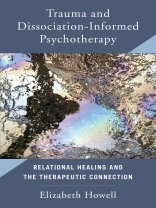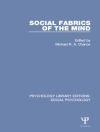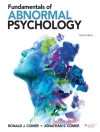A fresh look at the importance of dissociation in understanding trauma.
A new model of therapeutic action, one that heals trauma and dissociation, is overtaking the mental health field. It is not just trauma, but the dissociation of the self, that causes emotional pain and difficulties in functioning. This book discusses how people are universally subject to trauma, what trauma is, and how to understand and work with normative as well as extreme dissociation.
In this new model, the client and the practitioner are both traumatized and flawed human beings who affect each other in the mutual process that promotes the healing of the client—psychotherapy. Elizabeth Howell explains the dissociative, relational, and attachment reasons that people blame and punish themselves. She covers the difference between repression and dissociation, and how Freud’s exclusive focus on repression and the one-person fantasy Oedipal model impeded recognition of the serious consequences of external trauma, including child abuse. The book synthesizes trauma/dissociation perspectives and addresses new structural models.
Despre autor
Elizabeth Howell, Ph D, teaches at several institutes and is on the Editorial Board of the Journal of Trauma and Dissociation. She has written three previous books on trauma, dissociation, and attachment, and over thirty-five articles. She lives in New York City.












